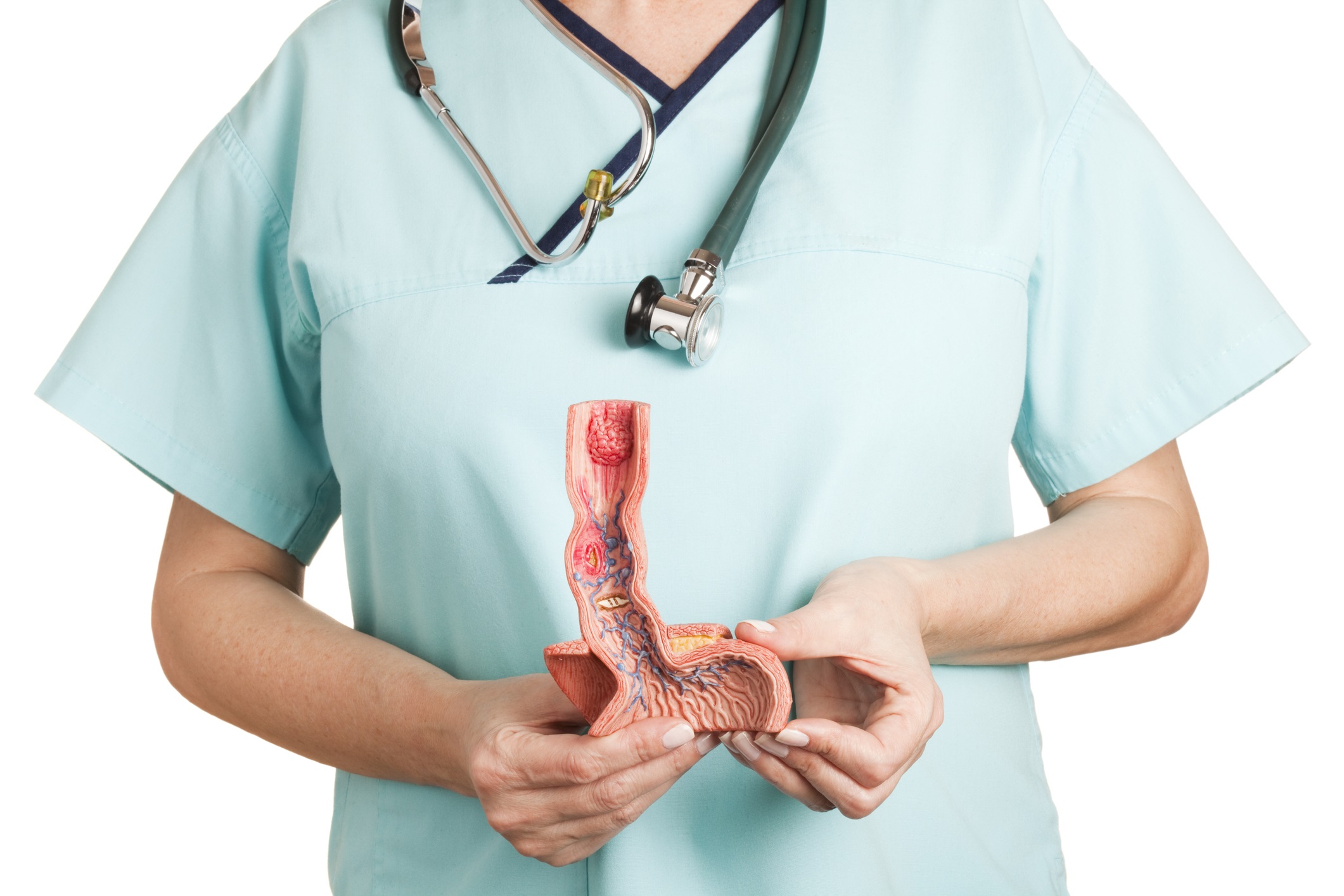 Esophageal cancer is a disease that develops when cancer forms in the esophagus- the long, hollow, muscular tube that runs from your throat to your stomach. The esophagus helps to move food and liquids to your stomach after you swallow.
Esophageal cancer is a disease that develops when cancer forms in the esophagus- the long, hollow, muscular tube that runs from your throat to your stomach. The esophagus helps to move food and liquids to your stomach after you swallow.
Cancer of the esophagus is the sixth most common cause of cancer deaths worldwide. It occurs more often in men than in women.
Although the cause for esophageal cancer is unclear, research indicates that the disease may develop as a result of damaged DNA in the cells that line the esophagus. It is also believed that chronic irritation to the esophagus is a contributing factor. Other factors that may increase the risk of developing the disease include:
- Being obese
- Having GERD
- Having Barrett’s esophagus( A serious complication of GERD)
- Having bile reflux
- Drinking excessive amounts of alcohol
- Smoking
- Undergoing radiation treatments to the chest or upper abdomen
Esophageal cancer may not have symptoms in its early stages. However, as the disease progresses the following symptoms may occur:
- Difficulty swallowing
- Hoarseness
- Chronic cough
- Chest pain or discomfort
- Indigestion and heartburn
Cancer of the esophagus can be diagnosed by performing a series of tests and procedures that include genomic testing, imaging scans, endoscopy or biopsy. If it is found that you have developed esophageal cancer, your doctor may request further testing to determine the stage of cancer.
Treatment for esophageal cancer is based on stage, overall health and your preferences for care. Immunotherapy, surgery, chemotherapy, radiation therapy or interventional radiology are some of the approaches that your doctor may discuss with you.
If you are experiencing symptoms of esophageal cancer, please call Flushing Hospital Medical Center at 718-670-5486 to make an appointment.
All content of this newsletter is intended for general information purposes only and is not intended or implied to be a substitute for professional medical advice, diagnosis or treatment. Please consult a medical professional before adopting any of the suggestions on this page. You must never disregard professional medical advice or delay seeking medical treatment based upon any content of this newsletter. PROMPTLY CONSULT YOUR PHYSICIAN OR CALL 911 IF YOU BELIEVE YOU HAVE A MEDICAL EMERGENCY.
